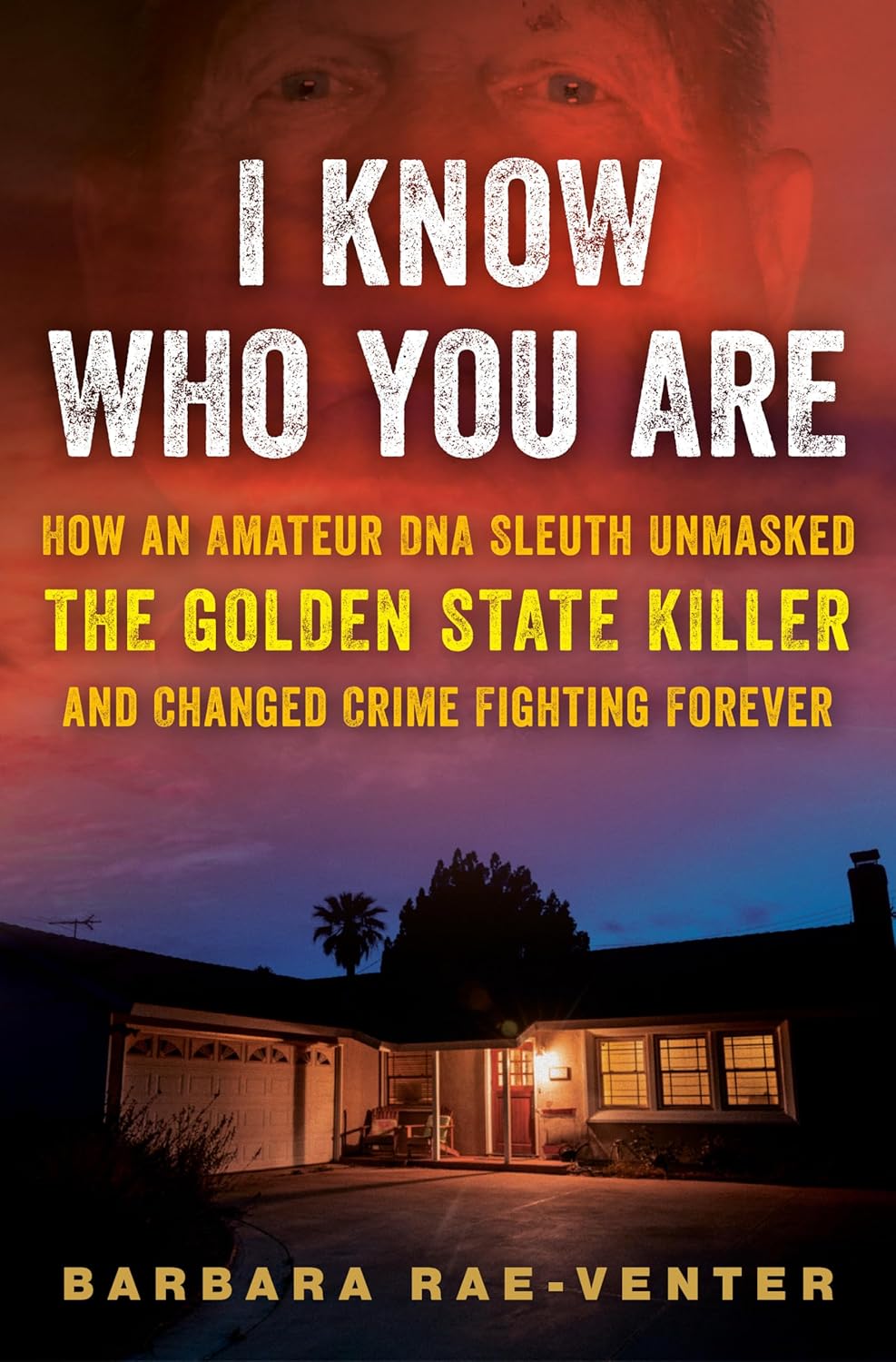Book Summary
Barbara Rae-Venter’s I Know Who You Are chronicles her improbable journey from retired patent attorney to the forensic genealogist who identified the Golden State Killer (GSK). The book details how Rae-Venter, using investigative genetic genealogy (IGG), solved the 40-year-old cold case in just 63 days by uploading crime-scene DNA to public databases like GEDmatch. Her work not only unmasked Joseph James DeAngelo—responsible for 13 murders and 50+ rapes—but also revolutionized criminal investigations globally .
Beyond the GSK case, Rae-Venter shares gripping accounts of other cold cases she cracked, including identifying a kidnapped child (“Lisa Jensen”) and the “Billboard Boy” homicide. The narrative balances scientific rigor with human drama, revealing how DNA can restore identities and deliver justice. Rae-Venter’s “grasshopper mind”—her method of circling problems from unconventional angles—shines through as she deciphers ancestral puzzles with census records, obituaries, and even Facebook .
Key Themes
Science vs. Justice: The book explores how IGG bridges genetics and detective work. Rae-Venter explains complex concepts like SNP profiling and triangulation in layman’s terms, showing how distant DNA matches (e.g., third cousins) can pinpoint suspects. Her breakthrough hinged on linking crime-scene DNA to public genealogy databases, a tactic now standard in cold-case units .
Ethical Dilemmas: Rae-Venter addresses privacy concerns sparked by her work. While she champions IGG as a tool for justice, the book acknowledges backlash after GEDmatch tightened access post-GSK. Critics argue unchecked DNA use risks surveillance overreach; Rae-Venter counters that catching violent offenders justifies the trade-off .
What Makes It Unique
Rae-Venter’s memoir stands out for its insider perspective on forensic innovation. Unlike traditional true crime, it focuses on the “how” rather than the crimes themselves. Her collaboration with detective Paul Holes—who initially doubted her methods—adds tension, culminating in DeAngelo’s arrest after a discarded DNA sample (a pizza crust) confirmed her findings .
The book also humanizes science. Rae-Venter’s emotional recounting of victim impact statements at DeAngelo’s sentencing contrasts with clinical DNA analysis. Her description of staring at her screen at 3 AM, realizing she alone knew the GSK’s identity, captures the surreal power of IGG .
Reader Reactions
Reviews praise Rae-Venter’s accessible science writing (Kirkus calls it “cinematic suspense”), though some note prior GSK knowledge (e.g., McNamara’s I’ll Be Gone in the Dark) enhances context. Critics highlight the ethical debate, with Slate questioning Rae-Venter’s dismissal of privacy fears .
On Goodreads, readers rate it 4.1/5, applauding its “addictive” pace but cautioning about graphic case details. Many cite the “Lisa Jensen” chapter as the most moving, where Rae-Venter reunites a kidnapping survivor with her birth family after 30 years .
About the Author
Barbara Rae-Venter holds a Ph.D. in biology and a law degree, specializing in biotech patents. A New Zealand native, she began genealogical research post-retirement, volunteering with DNAAdoption before pivoting to criminal cases. Her GSK work earned spots on Time’s 100 Most Influential People and Nature’s “10 Who Mattered in Science” lists .
Today, Rae-Venter leads Firebird Forensics, training law enforcement in IGG. Her book underscores her belief that DNA is “the ultimate truth-teller,” though she admits frustration when emotions override data—like her father embracing an impostor son despite DNA proof .
Memorable Quotes
“I might have been the only person in the world who knew the precise identity of the Golden State Killer.”
“DNA doesn’t lie. People do.”
Where to Buy or Download PDF of I Know Who You Are by Barbara Rae-Venter
- Penguin Australia (eBook)
- Goodreads (reviews/retailers)
